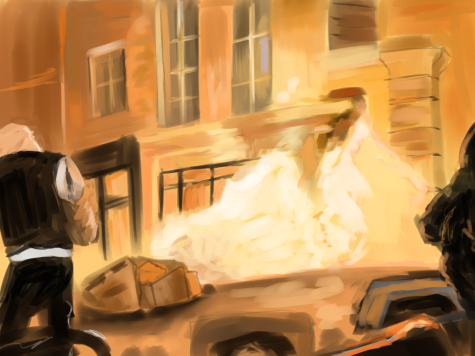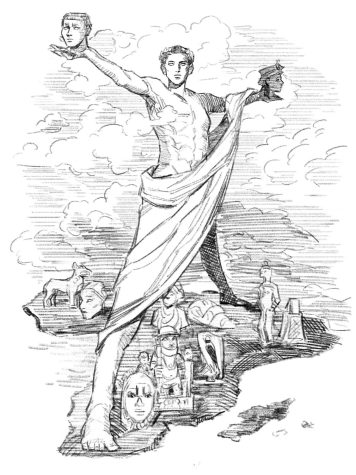A New Era in Lebanon
January 31, 2020
The government of Lebanon has been corrupt for a long time, and the people were always angry. These groups of politicians gained power when they won the Lebanese Civil War 30 years ago and have caused massive inequality. Recently, because of this inequality, the people of Lebanon have protested against the old government, many reforms.
The protesters are mainly protesting about their secular government and the financial systems. They have four demands: an end to government corruption, an end to the secular political system with the beginning of a Parliament ruled only by educated professionals without political backgrounds, the recovery of stolen funds, and fair taxes.
In Lebanon, 70% of the people make less than $10,000 annually and the top 1% own ¼ of the country’s wealth. Adding to the inequality, many elite Lebanese spend money on lavish things. The former Prime Minister Saad Hariri, for example, spent $16 million dollars on his South African model girlfriend. Even though there have been numerous examples indicating the corruption of the government, the government still denies their accusations.
Such spending by the Lebanese government has created an enormous deficit in the Lebanese budget. In order to curb this deficit, the government’s cabinet discussed about a possible tax on Whatsapp calls. This, along with many other extra taxes, enraged the citizens. With a large deficit, the country is also not able to provide its citizens with basic facilities such as water, sanitation and electricity.
It started out relatively small on October 17, 2019, when 100 activists protested against the proposed taxes in Beirut, the capital of Lebanon, by blowcking major streets. The movement has now spread as citizens of all religions and political backgrounds have gathered in public squares all across the country to protest against each and every Lebanese politician.
In addition, Hezbollah, an Islamic extremist party, protested against American interference while the Progressive Socialist Party protested against capitalism. Other parties included nationalist parties from minorities such as the Syrians and Armenians as well as movements for democracy.
In response to the protests, the government scrapped the Whatsapp tax, and on October 21, former prime minister Saad Hariri announced a new reform package for the country. This package planned to cut the wages of politicians in half. However, many protesters did not think that the government would hold true to their word because of their actions later on.
Recently, the government has become even more brutal in trying to stop the protests. From October 17 to January 17 of this year, there have been 527 arrests, and there has even been a crackdown against foreign and domestic journalists that are critical of the government. On January 19, an American journalist, Nicholas Frakes, who was reporting to the New Arab, was put into a notorious Lebanese military prison under suspicion of sending protest videos to Israel, a country that Lebanon has been at odds with for decades.
Positive things still happened as a result of the protests. Prime Minister Hariri resigned from office and a new government is about to be formed. However, there is still a lot of enragement at the government for violating rights such as the freedom to assemble and for not achieving the protesters’ demands. The future of Lebanon rests in these few years to come.


